Immediately after Israel eliminated Gen. Mohammad Reza Zahedi and other IRGC officers in Damacus and Iran vowed to retaliate, senior US officials began urging Arab countries to share intelligence about Iran’s plans and in the case of a major attack, to aid in intercepting drones and missiles, the Wall Street Journal reported on Monday.
Although several of the Arab countries were wary of getting involved in the conflict and risking Iranian reprisal, after further talks with the US, the UAE and Saudi Arabia agreed to share intelligence and Jordan agreed to share its airspace with the US and other countries and use its own aircraft to intercept Iranian missiles and drones.
Two days before the attack, Iran informed Saudi Arabia and other Gulf countries of their intention to carry out an attack against Israel, sharing the outline and timing. The information was quickly transmitted to the US, allowing Washington and Jerusalem time to prepare.
The White House then ordered the Pentagon to reposition aircraft and missile-defense resources to the area and led the the coordination of defense measures between Israel and the Arab countries, a senior Israeli official said.
“The challenge was to bring all those countries around Israel” at a time when Israel is isolated in the region, the official said. “It was a diplomatic issue.”
From the moment Iran launched the first missiles and drones, they were tracked by early warning radars in Persian Gulf countries linked to the U.S. operations center in Qatar, which transmitted the information to fighter jets from several countries in the airspace over Jordan and other countries, as well as to warships at sea and missile-defense batteries in Israel, officials said.
The drones were shot down as soon as they came within range, mainly by IDF and US warplanes and in smaller numbers by British, French, and Jordanian warplanes. None of the drones or cruise missiles launched by Iran even reached Israeli airspace and only nine out of 130 ballistic missiles breached Israel’s air defense system and hit two of Israel’s air bases, but no significant damage was reported, a senior US official told ABC News.
Although Arab countries have frequently shared intelligence on air-defense threats in the past, the coordinated defense to the attack “was the first time that we saw the alliance work at full power,” an Israeli official said, referring to the regional security cooperation efforts that began with the Abraham Accords.
According to WSJ, “the formidable display of collective defense was the culmination of a decades-old but elusive U.S. goal to forge closer military ties between Israel and its longtime Arab adversaries in an effort to counter a growing common threat from Iran.
“But the U.S.-led effort to protect Israel in the days and hours before the Iranian attack had to overcome numerous obstacles, including fears by Gulf countries at being seen as coming to Israel’s aid at a time when relations are badly strained by the war in Gaza.
“Much of the cooperation Saturday night that led to the shooting down of the Iranian-directed barrage needed to be forged on the fly, and many details about the role played by Saudi Arabia and other key Arab governments are being closely held.
“Israeli and the U.S. forces intercepted most of the Iranian drones and missiles. But they were able to do so in part because Arab countries quietly passed along intelligence about Tehran’s attack plans, opened their airspace to warplanes, shared radar tracking information or, in some cases, supplied their own forces to help, officials said.
“The operation was the culmination of years of U.S. effort to break down political and technical barriers that thwarted military cooperation between Israel and the Sunni Arab governments, officials said. Instead of a Middle East version of the NATO alliance, the U.S. has focused on less formal regionwide air-defense cooperation to blunt Tehran’s growing arsenal of drones and missiles—the very weapons that threatened Israel Saturday.
“Efforts to build an integrated air-defense system for the region date back decades. After years of false starts and minimal progress, the initiative gained momentum after the 2020 Abraham Accords brokered by the Trump administration, which established formal ties between Israel and the United Arab Emirates and Bahrain.
“Two years later, the Pentagon shifted Israel from its European Command to Central Command, which includes the rest of the Middle East, a move that enabled greater military cooperation with Arab governments under U.S. auspices.
“‘Israel’s move into Centcom was a game changer,’ making it easier to share intelligence and provide early warning across countries, said Dana Stroul, who until December was the most senior civilian official at the Pentagon with responsibility for the Middle East.
“In March 2022, Marine Gen. Frank McKenzie, then the top U.S. commander in the region, convened a secret meeting of top military officials from Israel and Arab countries to explore how they could coordinate against Iran’s growing missile and drone capabilities. The talks, held at Sharm El Sheikh, Egypt, marked the first time that such a range of ranking Israeli and Arab officers met under U.S. military auspices to discuss countering Iran.
“’The Abraham Accords made the Middle East look different…because we could do things not just under the surface but above it,’ a senior Israeli official said. Joining Central Command enabled even more technical cooperation with Arab governments. ‘That’s what created this alliance,’ the official said.
“Despite the progress made, the U.S. goal of having Israel and the Arab states seamlessly share tracking data on Iranian threats in real time has never been fully realized because of political concerns, officials said.
“Bilal Saab, a former Pentagon official who worked on security cooperation in the Middle East, said it was premature to speak of security integration in the region. ‘It was always going to be gradual, and [Saturday] was an important real-world first step,’ said Saab, now a fellow at the London-based Chatham House think tank.
“But cooperation between Israel and Arab government on air defense with the U.S. as an intermediary has become common, even with Saudi Arabia, which still hasn’t established diplomatic relations with Israel, Israeli and U.S. officials say.”
(YWN Israel Desk – Jerusalem)

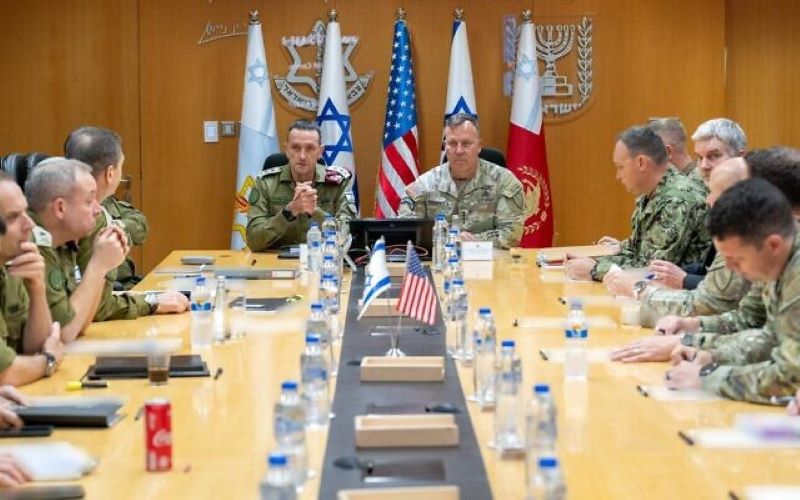


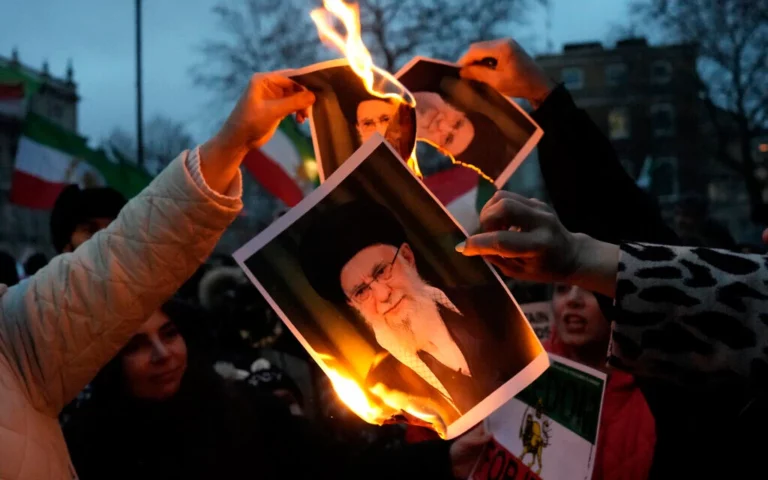

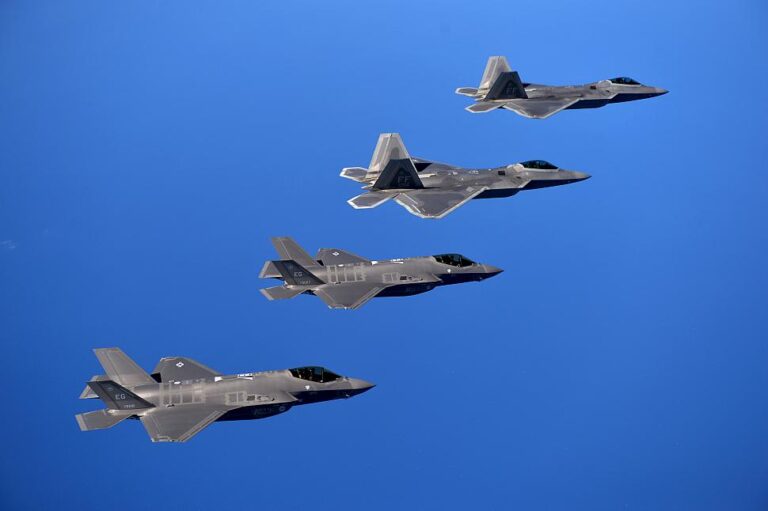


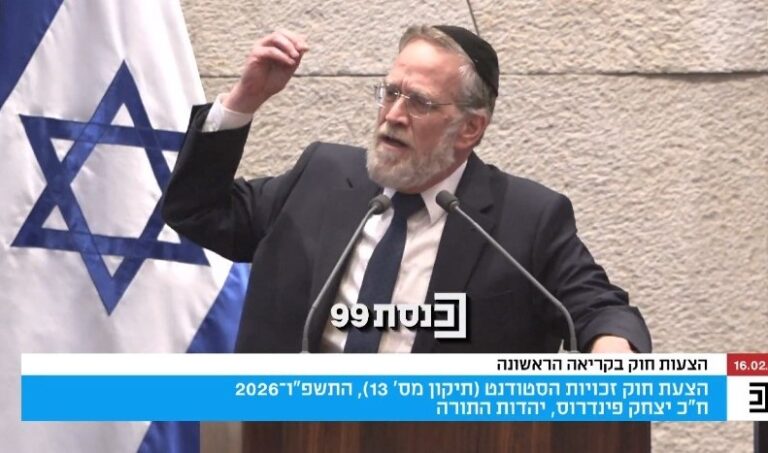

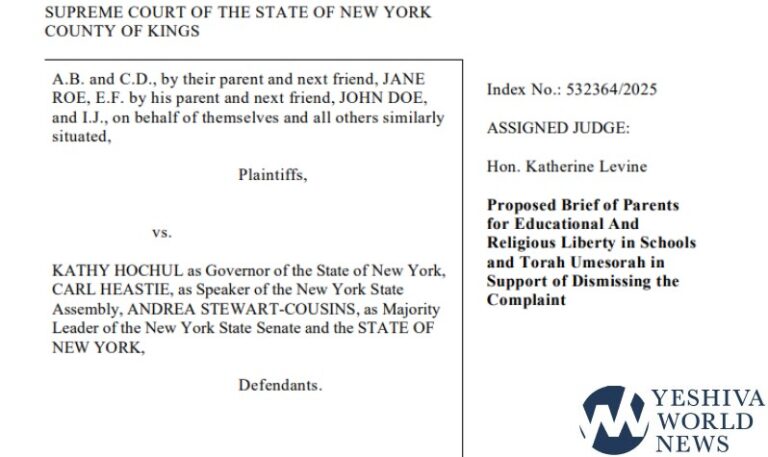
One Response
For Arab-Muslim nations like UAE & Saudi Arabia to help Israel, even indirectly, is a modern-day miracle, for which all Jews should THANK HASHEM!!!!
It is also a devastating defeat for Iran, even more devastating than Israel firing back against Iran with missiles and exploding drones.